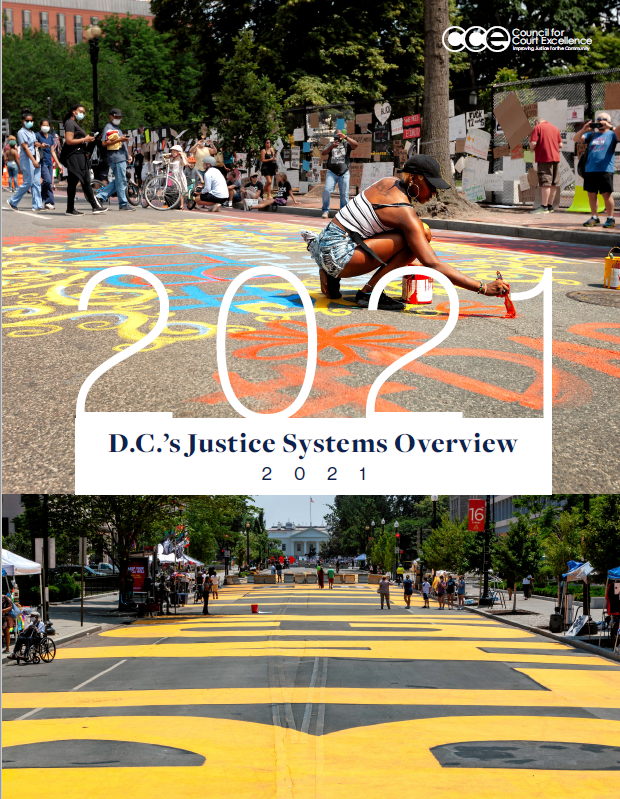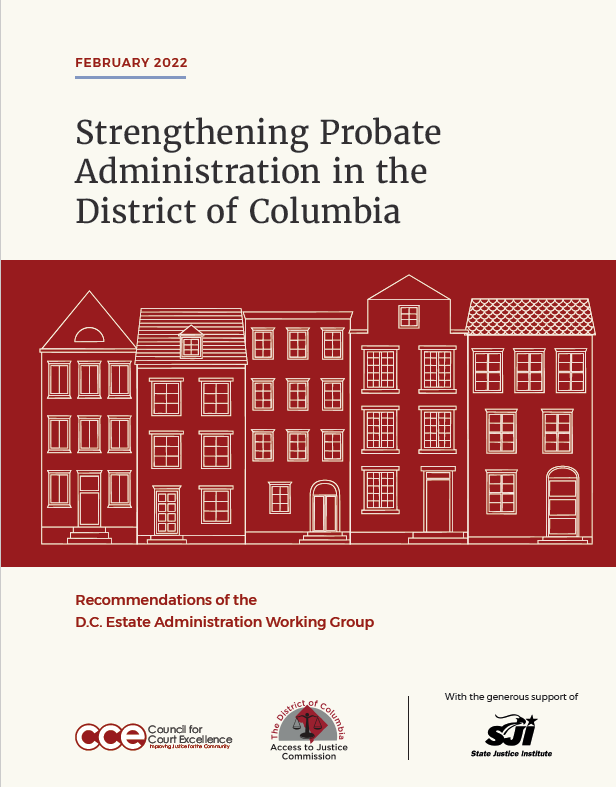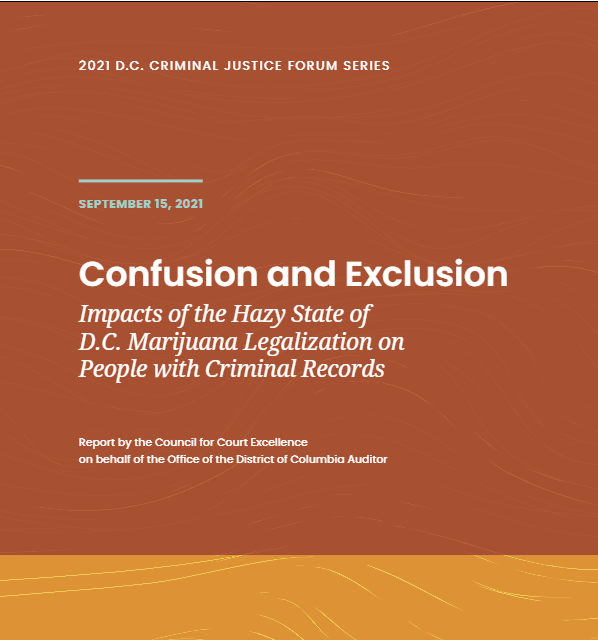Digital Library
On April 10, 2024, Tracy Velazquez, CCE's Policy Director, testified at the Budget Oversight Hearing for the D.C. Department of Corrections before the Council of the District of Columbia.
This issue brief provides an overview of CCE's efforts to get information and data about the use of solitary confinement - often referred to as restrictive housing or segregation - in D.C. Department of Corrections (DOC) facilities. It goes on to summarize the limited data that was provided after protracted negotiations, and describes the inquiries that remain unanswered by DOC.
On February 22, 2024, CCE submitted testimony for the Performance Oversight Hearing for the Office of Administrative Hearings before the Council of the District of Columbia.
The DC Criminal Legal Systems Overview 2022 offers a data-forward look into the significant challenges and innovations in the District of Columbia’s adult and youth criminal legal systems during the last year. As D.C. began to emerge from the most devastating impacts of the COVID-19 pandemic in 2022, community members and government leaders continued to navigate challenges caused and exacerbated by the trauma, isolation, and disruptions over the past three years.
On July 13, 2023, CCE's Policy & Communications Manager Casey Anderson testified in support of the Food Regulation Ensures Safety and Hospitality Specialty Training Aids Re-entry Transition and Success (FRESH STARTS) Act of 2023.

On November 21 2022, CCE, with pro bono support from Wiley Rein, published a white paper on compassionate release in the District. The white paper analyzes Freedom of Information Act request data received from the Federal Bureau of Prisons regarding people convicted of D.C. Code offenses in their custody.
In its Fiscal Year 2023 budget, the District of Columbia dedicated funds to begin the planning and design phase for a new annex to the Correctional Treatment Facility (CTF). In response, CCE and several partners facilitated a series of community conversations during 2022 to collect D.C. residents’ feedback on the features of a new facility that would re-envision the purpose, approach, space, facilities, services, staffing, and use of a jail.This effort heard from roughly 200 D.C. residents, including those most directly impacted.

On May 27, 2022, CCE published D.C.'s Justice Systems Overview 2021. The report was published with support from Public Welfare Foundation.

On February 9, 2022, the Council for Court Excellence (CCE) and the D.C. Access to Justice Commission (ATJC) published Strengthening Probate Administration in the District of Columbia. In January 2020, CCE and ATJC formed an expert Working Group to address the challenges faced by self-represented individuals during probate. The Working Group ultimately developed recommendations in 20 areas to strengthen probate processes for everyone and increase access to justice for low- and moderate-income people.

On September 15, 2021 the Council for Court Excellence (CCE) and the Office of the District of Columbia Auditor (ODCA) hosted a forum "Confusion and Exclusion: Impacts of the Hazy State of D.C. Marijuana Legalization on People with Criminal Records", which focused on the current state-of-play for D.C.'s marijuana legislation, how it impacts justice-involved residents, and reforms the District should enact in the future. This was the final forum in a four-part series hosted by ODCA and CCE in 2021 focused on urgent criminal justice topics in the District. Each public forum featured experts, significant local stakeholders, and impacted people coming together to address an emerging topic of criminal law or policy that is ripe for change in Washington, D.C. This report frames the issue, provides an edited transcript of the forum discussion, and includes a bibliography of relevant resources.


